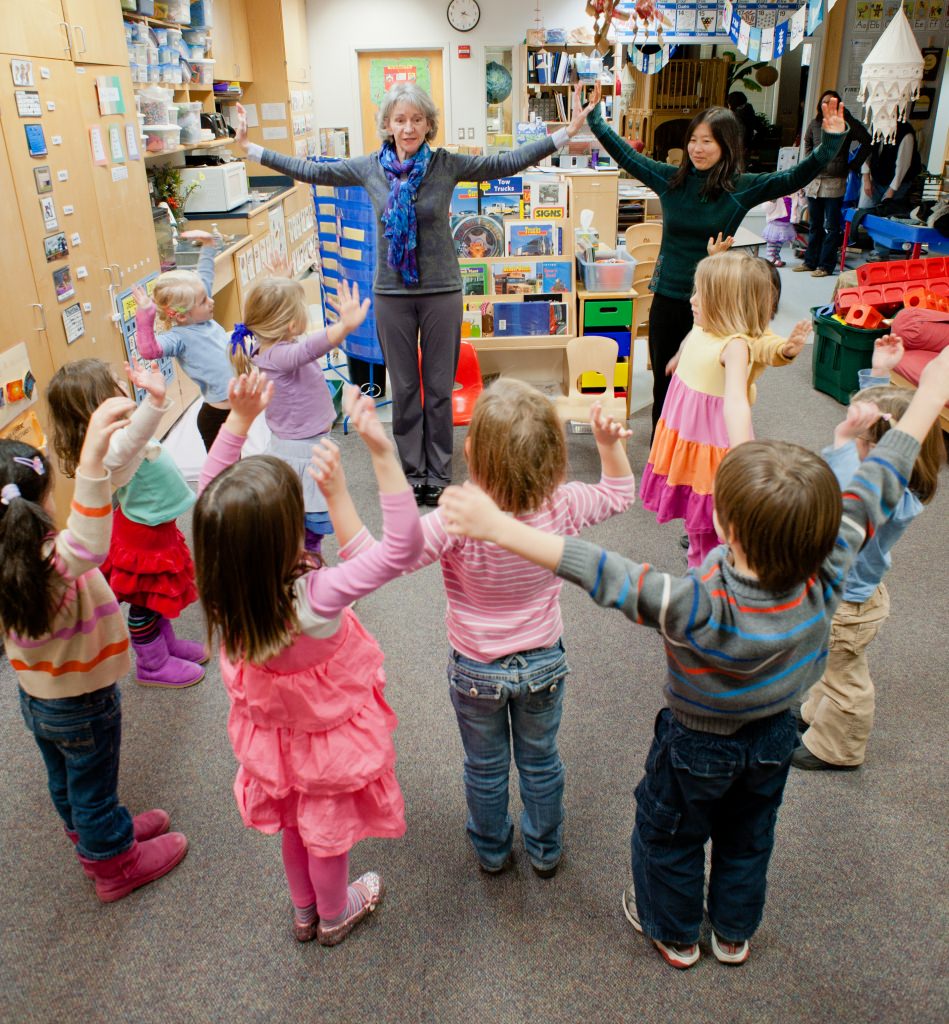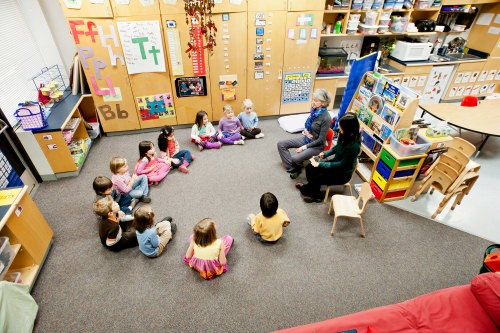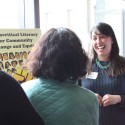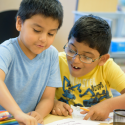Preschool “Kindness Curriculum” is now available, free

Associate scientist Lisa Flook (right) and former outreach specialist Laura Pinger (left) teach the Center for Healthy Minds Kindness Curriculum to a group of preschoolers at the Waisman Center Early Childhood Program at UW–Madison in 2011. In addition to exploring prosocial concepts like kindness, forgiveness and gratitude, kids are taught mindful movement exercises to build awareness of their minds and bodies. Krakora Studios
What if kindness, attention and gratitude were taught in schools just like math, history and reading?
Today, they can be, as the University of Wisconsin–Madison Center for Healthy Minds is releasing its free mindfulness-based “Kindness Curriculum,” a 12-week program designed for teachers to implement with their preschoolers. More than 2,000 educators from around the world have already signed up on CHM’s website to receive it.
Focusing on a range of themes — from encouraging kids to distinguish how emotions make them feel on the inside and outside, to acts of kindness and forgiveness — the curriculum includes scripts, activities, parent letters and instructions for implementing each lesson.
The curriculum originated as part of research at CHM, an organization that studies the science of well-being and examines how to improve it across the lifespan. Early findings published in Developmental Psychology by CHM scientists in 2015 suggested the program could improve both emotional and social measures of child well-being. Children participating in the curriculum not only improved on social and emotional measures such as sharing, attention and empathy, they also performed better on traditional academic measures, like grades, when compared to children in the control group.

Associate scientist Lisa Flook (right) and former outreach specialist Laura Pinger (left) teach the Center for Healthy Minds Kindness Curriculum to a group of preschoolers at the Waisman Center Early Childhood Program at UW–Madison in 2011. The mindfulness-based program encourages children to notice their emotions and how they feel physically by observing their breath. Krakora Studios
Since then, interest in ways to integrate social and emotional learning in the classroom and at home has grown among educators and the general public. Center experts recently had the unique honor of sharing their curriculum study insights with education groups, including Sesame Street Workshop, where they consulted for the show’s current season on kindness.
“We’re thrilled to be able to share this curriculum with a wider community outside of our lab,” says Richard Davidson, founder and director of CHM and William James and Vilas Professor of Psychology and Psychiatry. “It’s been an aspiration of ours to bring the insights of the lab out into the world where they can have the broadest impact for kids.”
Davidson and other scientists say that although initial findings on the curriculum are compelling, there is still significant work to be done to fully understand whether these results last beyond the time period of the study and whether such changes can be seen in similar studies.
To access the Kindness Curriculum, visit: go.wisc.edu/KindnessCurriculum



